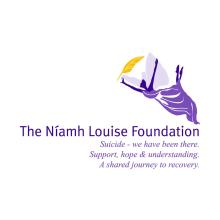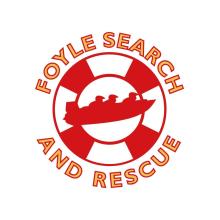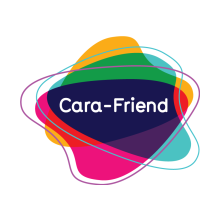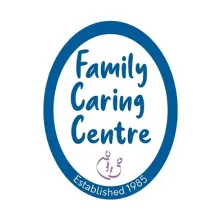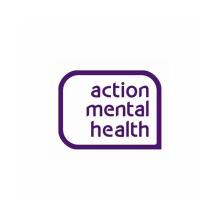
Other mental illnesses
Find out more about bipolar disorder, borderline personality disorder, eating disorders, obsessive compulsive disorder, panic attacks, post-traumatic stress disorder, psychosis and schizophrenia.

There are many different mental illnesses. Some have similar symptoms and a person may experience more than one mental health problem.
If you are experiencing symptoms of these mental illnesses, it is important to speak to your GP. It is unlikely that these symptoms will get better without professional help and support.
Bipolar disorder
Bipolar disorder is a condition that affects a person’s mood. It can cause a person's mood to swing from one extreme to another. A person with bipolar disorder may experience depression (feeling low or lethargic) lasting weeks or months, alternating with periods of mania (feeling very high or overactive). Those with bipolar can also have periods of stability.
If you are experiencing symptoms of bipolar disorder, make an appointment with your GP
Signs of bipolar disorder
People with bipolar disorder have periods of deep depression and excessively high mood (mania).
The depressive phase of bipolar may include:
- feeling low, sad, upset or hopeless;
- being irritable most of the time;
- feeling tired, being unable to sleep or sleeping too much;
- lacking confidence or self-worth;
- not doing the things you normally enjoy;
- self-harming;
- having suicidal thoughts.
The manic phase of bipolar disorder may include:
- feeling very happy, elated or overjoyed;
- being uncontrollably excited;
- feeling full of energy and self-importance;
- feeling irritable and unable to concentrate;
- behaving out of character, for example being rude, overspending or doing inappropriate things;
- losing your inhibitions and taking risks around personal safety.
What can help with bipolar disorder?
If you think you have bipolar disorder, you should speak to your GP first. They will ask you questions about your symptoms, rule out a physical cause of your symptoms and may refer you to a mental health professional who could make a diagnosis of bipolar disorder.
Medication is often offered to those with bipolar disorder. In a depressive phase, you may also be offered talking therapies such as cognitive behavioural therapy, which is known to be effective for depression.
If you are having thoughts of suicide, it is important you get help. Speak to your GP or call Lifeline on 0808 808 8000.
There are local support services that offer help and advice. These can be found in the Minding your head service directory.
Borderline personality disorder
Borderline personality disorder is a disorder of mood and how a person interacts with others. It's the most commonly recognised personality disorder. Those with a personality disorder have difficulties with how they think, perceive and feel about themselves or others.
If you are experiencing symptoms of borderline personality disorder, make an appointment with your GP.
Signs of borderline personality disorder
The symptoms of borderline personality disorder may range from mild to severe and usually emerge in adolescence.
Symptoms can be grouped into four main areas:
- emotional instability;
- disturbed patterns of thinking or perception;
- impulsive behaviour;
- intense but unstable relationships with others.
What can help with borderline personality disorder?
If you think you have borderline personality disorder you should speak to your GP, who may refer you to a mental health professional for accurate diagnosis of borderline personality disorder.
Many people with borderline personality disorder can benefit from psychological or medical treatment.
Treatment may involve a range of individual and group psychological therapies (psychotherapy). It will be carried out by trained professionals working with a community mental health team.
Depending on your symptoms and how you respond to treatment, you may need therapy for a long time. Over time, many people with borderline personality disorder overcome their symptoms and become able to cope normally with day-to-day interaction with others. Additional treatment is recommended for people whose symptoms return.
If you are having thoughts of suicide or self-harm, it is important you get help. Speak to your GP or call Lifeline on 0808 808 8000.
Local support services offer help and advice. These can be found in the Minding your head service directory.
Eating disorders
Eating disorders can affect anyone. People with an eating disorder worry about what they eat. Food can control their life and stop them making decisions about what they eat and how much they eat. Eating disorders can affect a person mentally, socially and physically.
There are three common eating disorders:
- Anorexia nervosa – where a person severely reduces the amount of food they eat because they fear gaining weight. They lose weight but view their body size as being larger than their actual size.
- Bulimia nervosa – where a person eats a lot of food very quickly and then purges (such as vomiting).
- Binge eating disorder– where a person feels they can’t stop themselves from eating and overeating in binge cycles, even when they are not hungry.
If you think you have an eating disorder, make an appointment with your GP.
Signs of eating problems
Eating problems can affect people in different ways, including:
- changes in weight;
- avoiding eating with others;
- controlling food or eating;
- binge eating;
- difficulty concentrating and feeling tired;
- feeling guilty or ashamed;
- changes in appearance, and feeling uncomfortable if people comment on these changes;
- exercising too much;
- developing short or long-term physical health problems.
What can help with an eating disorder?
An eating disorder has a significant impact on a person’s life and without treatment can affect health.
Your GP is the best place to start and can refer you to more specialist services. There are lots of recommended treatments for eating disorders, such as self-help programmes, talking therapies, including cognitive behavioural therapy for eating disorders. Sometimes a person may receive treatment in a hospital or clinic.
The most important thing to remember is that people can and do recover from eating disorders.
Local support services offer help and advice. These can be found in the Minding your head service directory.
Obsessive compulsive disorder
Obsessive compulsive disorder (OCD) is a mental health condition which causes a person to have obsessive thoughts which they find hard to ignore. These thoughts can be distressing and often lead to carrying out impulsive activities.
If you think you have OCD, make an appointment with your GP.
Signs of OCD
OCD affects people differently, although it usually causes a particular pattern of thought and behaviour. The pattern has four steps:
- Obsession – where an unwanted and unpleasant thought, image or urge repeatedly enters the mind.
- Anxiety – the obsession leads to a feeling of intense anxiety or distress.
- Compulsion – repetitive behaviours or mental act that you feel you need to carry out.
- Temporary relief – the compulsive behaviour brings temporary relief, but the obsession and anxiety return, causing the cycle to begin again.
What can help with OCD?
It is unlikely that OCD will get better without proper treatment and support. You should make an appointment with your GP, who will ask about your symptoms and can refer you to local psychological therapy service if necessary. There are effective treatments for OCD that reduce the impact of the condition on your life. These include psychological therapy medication.
Local support services offer help and advice. These can be found in the Minding your head service directory.
Panic disorder
Panic disorder is an anxiety disorder that causes regular sudden attacks of panic or fear. While everyone experiences feelings of panic, it is a natural response to dangerous or stressful situations, someone with a panic disorder has feelings of anxiety, stress and experiences panic attacks without any apparent reason.
Signs of panic attacks
A panic attack is an intense rush of mental and physical symptoms. These include:
- feeling disconnected from your body;
- feeling faint, trembling and a racing heartbeat;
- feeling of numbness or pins and needles;
- feeling of dread or dying.
The number of attacks is related to the severity of the condition. Most panic attacks last between 5 and 20 minutes, with extreme experiences lasting up to an hour. Although panic attacks are frightening, they are not dangerous and unlikely to require admission to hospital.
What can help with panic attacks?
A person may find the self-help initiatives listed below helpful.
Self-help for panic disorder
There are several things a person can safely do when they feel a panic attack coming on:
- breathe deeply and slowly;
- remind themselves the attack will pass;
- focus on positive, peaceful thoughts and images;
- remember it is not life threatening.
To prevent further panic attacks, it may help to:
- read self-help books;
- do physical activity to reduce stress;
- try yoga and Pilates for relaxation;
- avoid sugary foods and drinks, caffeine and alcohol, and stop smoking.
Talking therapies
Talking therapies involve talking to a professional trained to help a person explore their feelings. It lets someone talk about their thoughts and feelings and the effect these can have on their behaviour and mood. Talking about thoughts can help a person notice things that may be helpful to change.
With treatment, many people are able to control their panic disorder. However, some treatments may need to be continued for a long time.
If these fail to work, consider seeing a GP. A GP can advise on an appropriate course of action and rule out other causes, such as some medical conditions or side effects of certain prescription or non-prescription drugs.
Local support services offer help and advice. These can be found in the Minding your head service directory.
Post-traumatic stress disorder
Post-traumatic stress disorder (PTSD) describes a range of symptoms people may get following a distressing or frightening event or situation. PTSD most commonly develops during the first month after a traumatic event, but in some cases it can occur months or even years later.
If you think you have PTSD, make an appointment with your GP.
Signs of PTSD
Symptoms of PTSD can vary between individuals, but include:
- Re-experiencing: flashbacks, nightmares, repetitive distressing images or sensations, physical sensations such as pain, sweating, feeling sick or trembling.
- Avoidance and emotional numbing: avoiding places or people that remind them of the trauma or avoiding talking about it. Distracting themselves to push memories out, or trying not to feel anything at all (emotional numbing).
- Hyperarousal: feeling on edge and anxious. This can lead to irritability, anger, sleeping problems and finding it difficult to concentrate.
Those with PTSD might have other mental health problems and display self-destructive behaviour such as self-harm or substance use.
What can help with PTSD
If your symptoms last more than a few weeks or you’re worried about your symptoms, you should speak to your GP. Your GP will ask you questions about your symptoms and if you’ve experienced a traumatic event. They may refer you to a mental health professional.
The support offered may include talking therapies, for example cognitive behavioural therapy, eye movement desensitisation and reprocessing or medication.
There are local support services which offer help and advice. These can be found in the Minding your head service directory.
Psychosis
Psychosis is when someone thinks or interprets events differently from other people, in a way that is harmful to their health and wellbeing. It includes hearing or seeing things that are not there (hallucinations); delusions (holding a fixed belief despite evidence it is false), and experiencing confused and disturbed thoughts.
If you are experiencing symptoms of psychosis, see your GP immediately.
If you are concerned about someone you know, contact their GP.
Signs of psychosis
Four main symptoms are linked with a psychotic episode:
- Hallucinations – someone sees, hears, feels, tastes, or smells things that don't exist outside of their mind.
- Delusions – someone has an unshakeable belief in something untrue. There are serval types of delusions.
- Confused and disturbed thoughts – speech may be fast or constant, they may switch from one topic to another mid-sentence or have a sudden loss in their train of thought, resulting in an abrupt pause in conversation or activity.
- Lack of insight - people who experience psychotic episodes are often unaware that their hallucinations or delusions aren't real. This may lead to them feeling frightened or distressed.
The symptoms of psychosis are often known as having a psychotic episode.
Getting help for psychosis
If you're experiencing symptoms of psychosis, you should see your GP immediately.
It's important psychosis is treated as soon as possible. Early treatment can be more effective. Your GP may ask you some questions to help find out what's causing your psychosis.
They should also refer you to a mental health specialist for further assessment and treatment.
Schizophrenia
Schizophrenia is a condition that changes how someone thinks, feels and behaves. It is most likely to start between the ages of 15 and 35 years.
Doctors often describe schizophrenia as a type of psychosis illness. This means sometimes a person may not be able to distinguish their own thoughts and ideas from reality.
People with schizophrenia do not have split personalities, and schizophrenia does not cause someone to be violent and dangerous.
If you are experiencing symptoms of psychosis, see your GP immediately.
If you are concerned about someone you know, contact their GP.
Signs of schizophrenia
Symptoms of schizophrenia:
- Hallucinations – someone sees, hears, feels, tastes, or smells things that don't exist.
- Delusions – someone has an unshakeable belief in something untrue.
- Confused thinking or speaking.
- Changes in behaviour - for example withdrawal from or no interest in everyday social interactions or life, feeling emotionless and disconnected and not caring for personal hygiene.
Getting help for schizophrenia
If you are experiencing symptoms of schizophrenia, you should see your GP as soon as possible. The earlier schizophrenia is treated, the more successful the outcome tends to be.
There are local support services which offer help and advice. These can be found in the Minding your head service directory.
